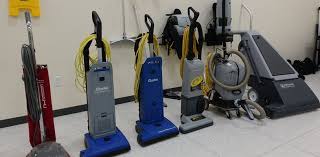Addiction is a serious health issue that can impact many aspects of your life, including your job. Many people facing addiction and having problems at work as a result are not aware that there are many legal protections available. Understanding your rights can help prevent you from facing discrimination at your workplace.
When you’re aware of your rights, you’re more prepared to spot any violations and take the necessary steps to address them. Staying informed is your best tool for defending yourself against unfair treatment at work. In this article, we will go over several ways that you are protected at work when you have an addiction.
1 – Americans with Disabilities Act (ADA)
The Americans with Disabilities Act (ADA) is a piece of legislation that protects your rights if you’re dealing with addiction. This federal law recognizes certain addictions, like alcohol dependency, as disabilities. Since the government treats addiction as a disease then it falls under the ADA and you could be entitled to specific protections at work.
While the ADA provides these federal protections, some states offer even more comprehensive laws. California Anti-Discrimination Laws, for example, go beyond federal requirements, offering additional protections for employees dealing with addiction.
Employers are required to work with you to figure out what accommodations you might need and how they can be implemented. They also have to keep any information you share about your addiction private, so your personal health details remain confidential.
2 – Family and Medical Leave Act (FMLA)
The Family and Medical Leave Act (FMLA) is a federal law that allows you some time to deal with addiction and take time away from work. FMLA allows eligible employees to take unpaid, job-protected leave for specific medical reasons, including treatment for addiction. Understanding how this law works is essential to ensuring you can deal with your recovery without the fear of losing your job.
You’re eligible if you have been with your employer for at least a year. You’ll need to have worked at least 1,250 hours during that time, and your employer has to have 50 or more employees.
If you’re planning to enter an inpatient rehab program, you can take some time off, allowing you to step away from work completely while you focus on getting better.
3 – Employer Assistance Programs (EAPs)
Many employers have Employer Assistance Programs (EAPs) as a support system for employees dealing with personal issues, including addiction.
These programs are set up to offer confidential help and services that can make a big difference when you’re trying to manage your health while staying on top of your job. You’ll need to do some research to understand how to take advantage of these programs and still maintain your confidentiality.
EAPs typically offer a variety of services, such as counseling, referrals to treatment programs, and help with managing stress. These services are usually free and, most importantly, confidential so you don’t have to explain yourself or your condition to anybody at work.





